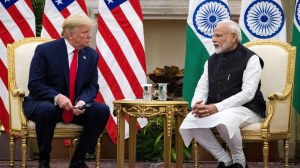Drugs to poor: Onus on govt to take
Getting life-saving drugs to cost less is half the battle. Getting them to reach the poor is another matter altogether. The Proneb Sen Task ...

Getting life-saving drugs to cost less is half the battle. Getting them to reach the poor is another matter altogether. The Proneb Sen Task Force set up by the Prime Minister, which submitted its report to the government on Tuesday, has a plan.
According to the report, now with the Chemicals and Fertilisers Ministry, essential drugs ought be bought by the government directly from manufacturers at below their market price, and then supplied to the poor at lower prices.
For Below Poverty Line (BPL) families, the Task Force suggests that government hospitals should make such medicines available for free. And not just available: they must spend money to tell the poor that cheaper drugs are available. ‘‘There is an imperative need to persuade the states to establish State Illness Funds (SIFs) and set up revolving funds in all government hospitals,’’ says the Task Force report.
These funds will help in marketing low-cost or free drugs, therefore plugging a loophole where poor or BPL families often remain unaware about the schemes to help them.
The report points out a need to overhaul the present drug delivery system, indicating that primary health care centres, the Public Distribution System or another suitable public network needs to be found to distribute drugs.
Such a distribution network, once finalised, can take the low-volume but high-priced life-saving drugs to the public, says the report.
‘‘In the case of low-volume high-priced drugs, which are nevertheless life-saving, the government should consider entering into access arrangements with the concerned manufacturers whereby a lower priced medicine would be procured and marketed through the government health system or other agencies to be designated by government,’’ it says.
The Task Force report is currently being considered by the Chemicals and Fertilisers Ministry, which is also sifting through the earlier GS Sandhu report on drug pricing and industry inputs.
The present Task Force had a single-point agenda: to find a way to make life-saving drugs affordable without going in for a price control. It has also suggested that price controls should not be imposed on turnover basis, but on the basis of ‘essentiality’ of a drug.
It also says that price control must only apply to formulations, not to bulk drugs, which are basically intra-industry transactions that need not be interfered with.
Non price-controlled drugs, the Task Force has said, should be brought under a ‘‘comprehensive price monitoring system,’’ while the licencing and marketing approval should be centralised and tightened. The Task Force has suggested reducing excise duty to 8 per cent and compulsory price negotiation for patented drugs, and moots a price ceiling system for 314 (instead of 354) essential drugs, which is to be based on the weighted average of value of top three brands.



- 01
- 02
- 03
- 04
- 05




























